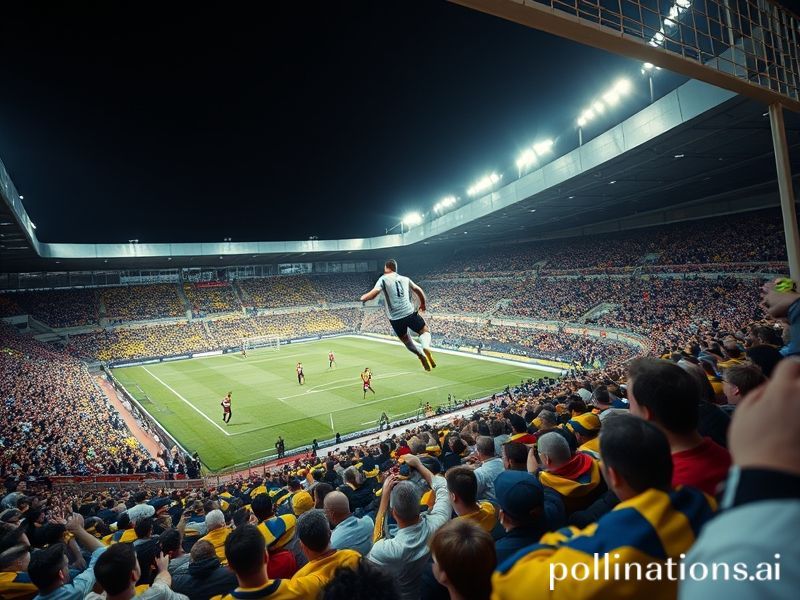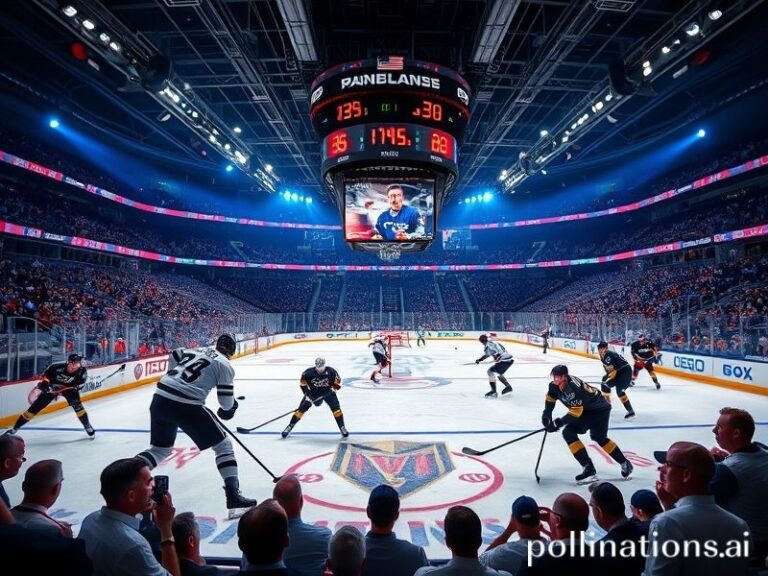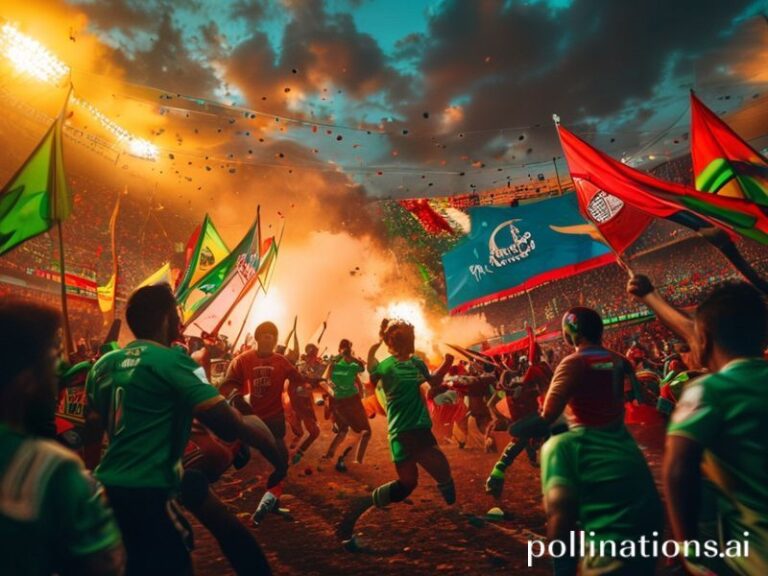Leeds vs Bournemouth: A Global Parable of Futility, Finance, and Football
Leeds United vs Bournemouth: A Microscopic Clash in the Colosseum of Meaningless Significance
by D. Lockhart, Senior Correspondent, Dave’s Locker
Somewhere between the Brexit hangover and the TikTok apocalypse, 22 men in fluorescent socks will chase a sphere across a rectangle of chemically enhanced grass in West Yorkshire. The planet, meanwhile, will keep spinning at 1,670 km/h, indifferent to whether Leeds United or AFC Bournemouth pocket the three points that—if we’re honest—will neither halt the climate meltdown nor lower your mortgage rate. Still, 35,000 paying pilgrims and a few million more streaming from Jakarta to Johannesburg will tune in, proving once again that humanity’s most renewable resource is selective attention.
To the uninitiated, Leeds-Bournemouth sounds like a dispute over regional rail timetables. Yet to the global congregation of armchair tacticians, it is an ideological proxy war. Leeds, the storied fallen giant now owned by American venture capitalists who think “Bielsa” is a brand of mezcal, represents the nostalgic fantasy of industrial grit. Bournemouth, bankrolled by a Russian oligarch’s pocket change and hailing from a seaside town best known for retirees and seagull obesity, embodies the nouveau-riche dream of buying relevance by the square meter. Pick your poison: rust-belt romance or crypto-coast chic.
Viewed from Davos, the match is a masterclass in soft-power laundering. Leeds’ 49ers-linked owners brag in Swiss conference lounges about “community engagement” while quietly monetizing every blade of grass. Bournemouth’s Maxim Demin—whose previous business ventures included pet food and offshore secrecy—uses the club as a polite introduction before segueing into conversations about liquefied natural gas. The ball is merely the conversation starter; the real game is brand equity and geopolitical networking, with half-time oranges replaced by NFT hors d’oeuvres.
Down in the global south, where electricity is negotiable but football streams are sacred, the fixture is dissected with doctoral fervor. In Lagos, betting shops smell of desperation and engine oil; a Leeds win might pay for next week’s generator diesel. In Manila, call-center agents mute customers mid-rant to check live updates on cracked iPhones. Somewhere in São Paulo, a data analyst for a cryptocurrency hedge fund has built an algorithm that correlates Leeds’ corner-kick frequency with soybean futures—because why not mash together two unrelated disasters and see if they rhyme?
Even the geopolitical heavyweights can’t resist a peek. Beijing’s sports-bureau mandarins study Bournemouth’s pressing triggers to improve the national team’s “high-tempo socialism.” Meanwhile, Washington think-tankers draft policy papers titled “Lessons from Elland Road: Counter-Radicalization Through Mid-Table Stability.” The irony, of course, is that the players themselves are mostly too exhausted from 12-hour video-game marathons to care about grand strategy; they just want to avoid getting roasted on Instagram by teenagers in Reykjavik.
The match’s carbon footprint, by the way, could power a small Baltic nation for a week—private jets ferrying Norwegian influencers, television trucks belching diesel outside the stadium, and 30,000 meat pies whose cows farted methane all the way to slaughter. But fear not: both clubs have pledged to be Net Zero by 2040, a date so distant it’s practically theological. By then Leeds might be underwater, Bournemouth could be a coral reef, and the Premier League will be played on the moon—though the broadcast rights will still be owned by a Murdoch.
At the final whistle, one set of fans will sing off-key anthems while the other trudges toward overpriced trains, both convinced that destiny has spoken. The players will swap shirts manufactured in Bangladeshi sweatshops, then retreat to their climate-controlled Bentleys. And somewhere in the ether, a satellite will beam the highlights to refugee camps and penthouse suites alike, uniting us all in the shared delusion that any of this truly matters.
But maybe that’s the point. In a year when glaciers file for bankruptcy and politicians treat truth like an optional DLC, the ability to scream at millionaires in tights is the last universally affordable therapy. Leeds United vs Bournemouth: not the end of the world, just a perfectly timed distraction from it.







